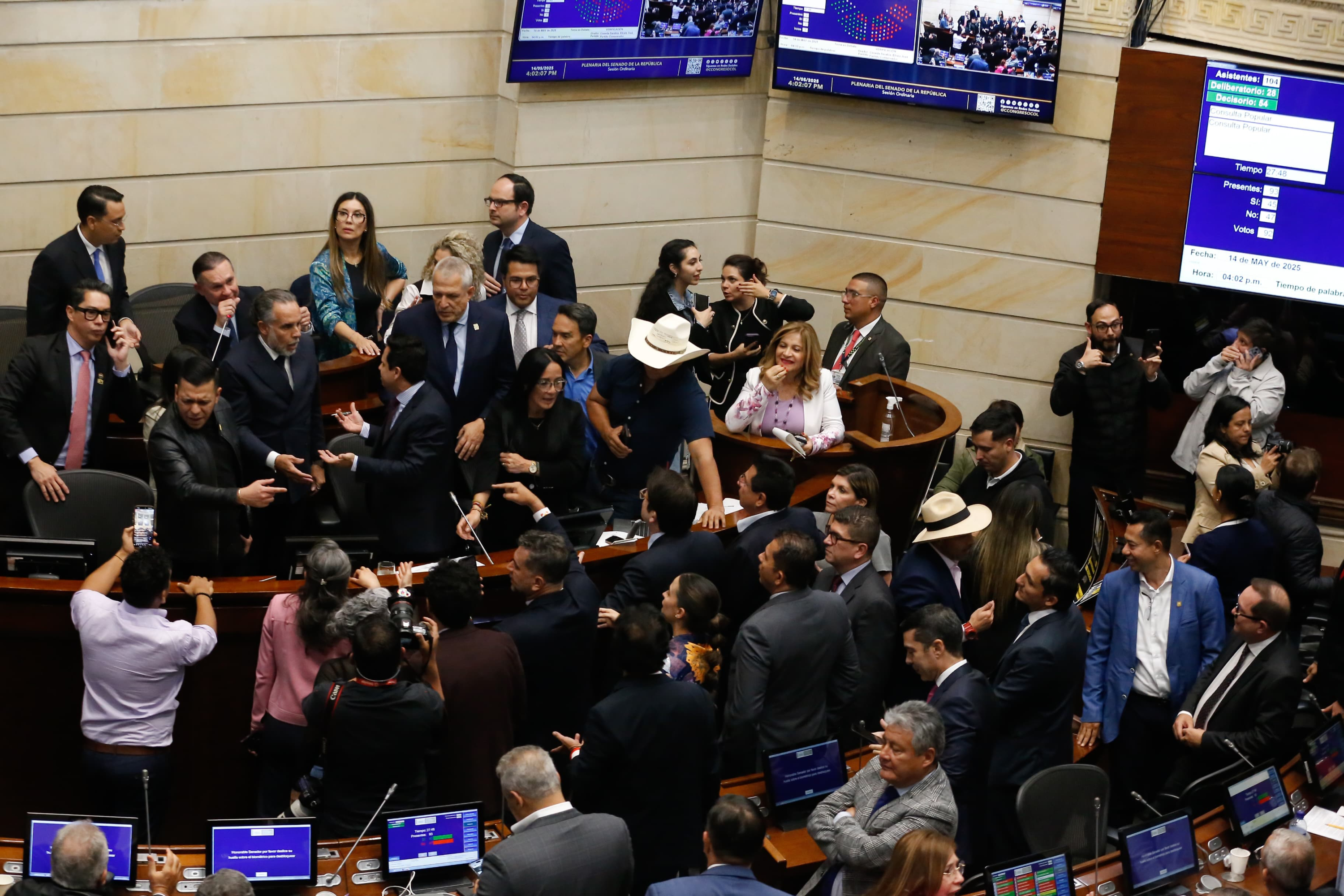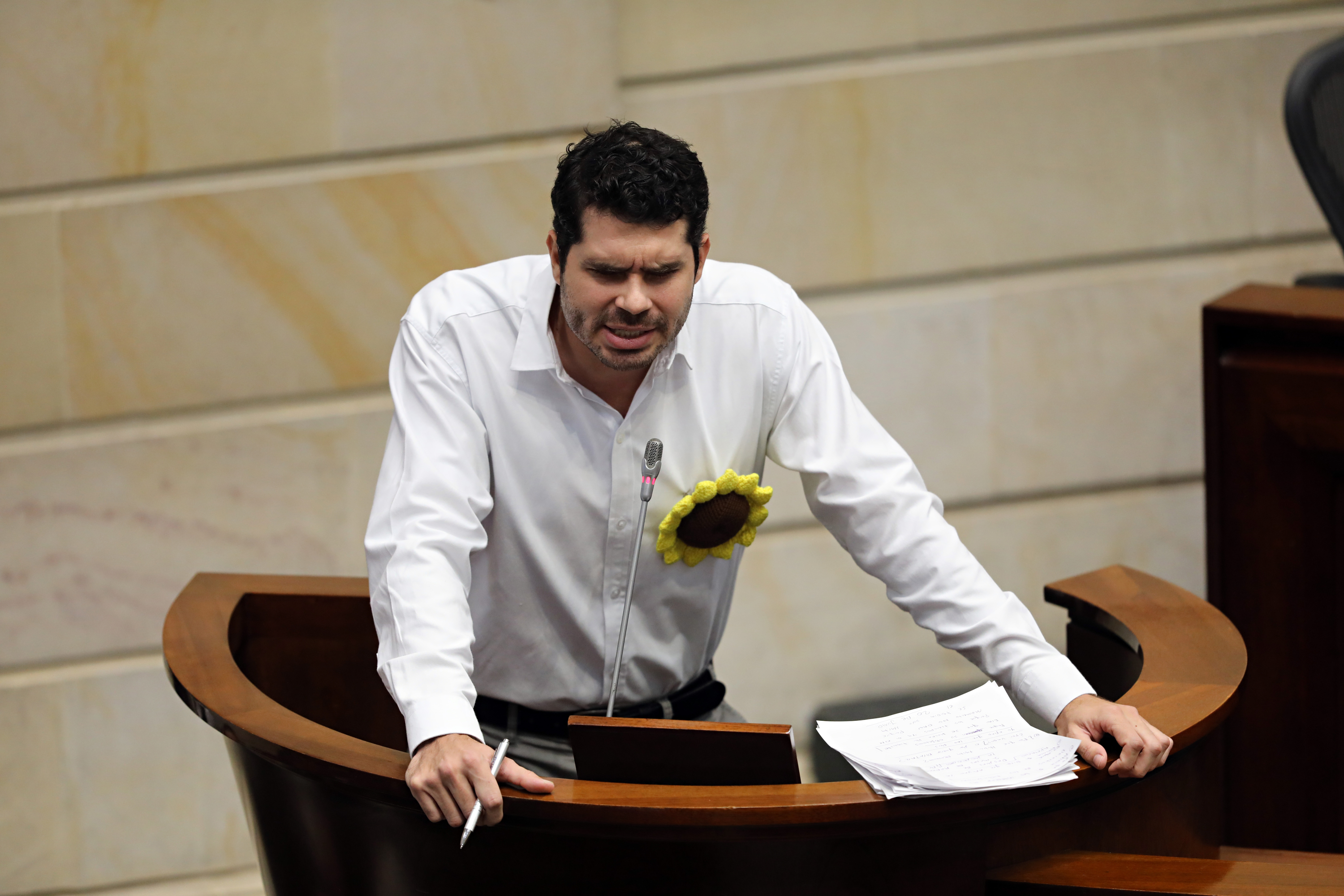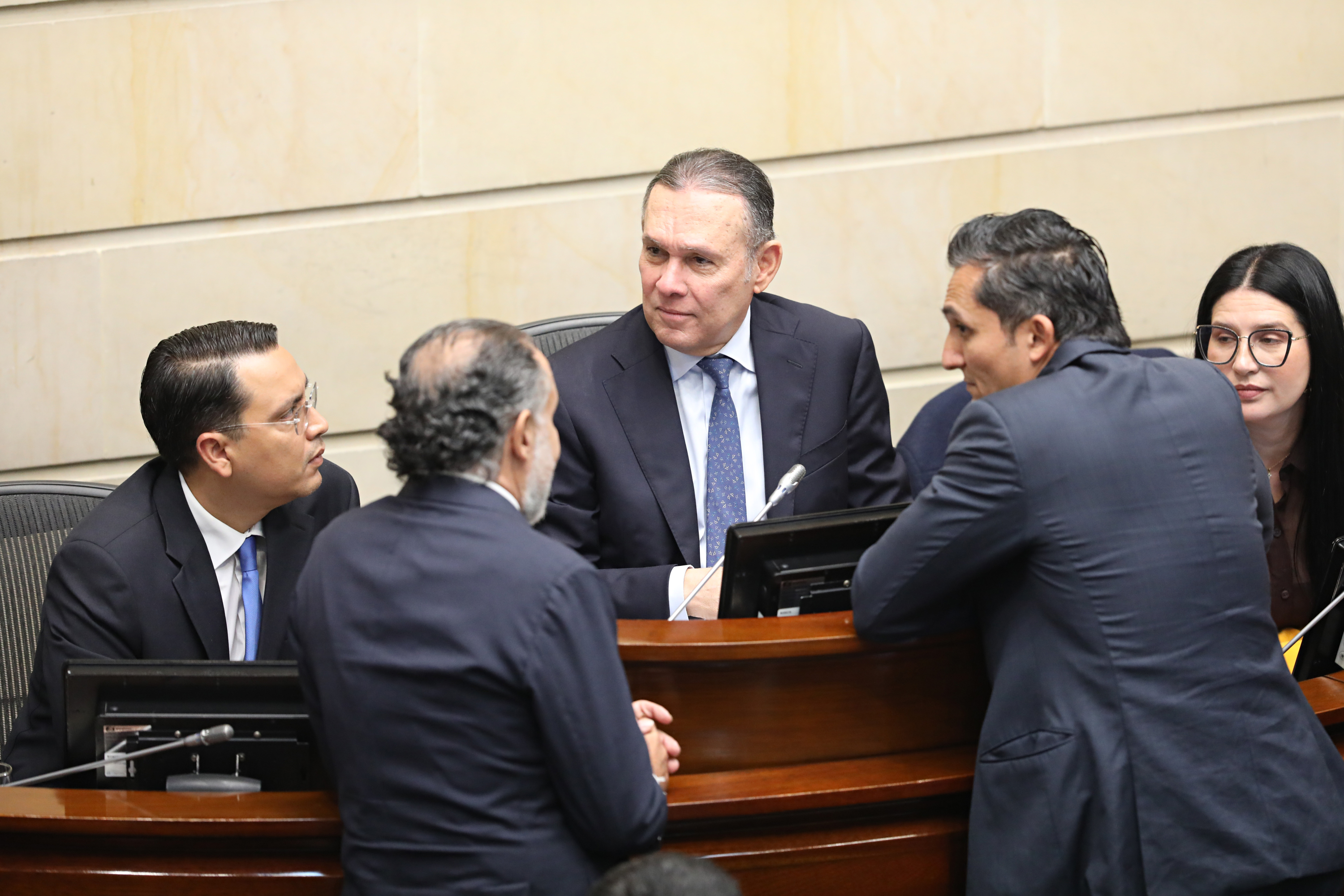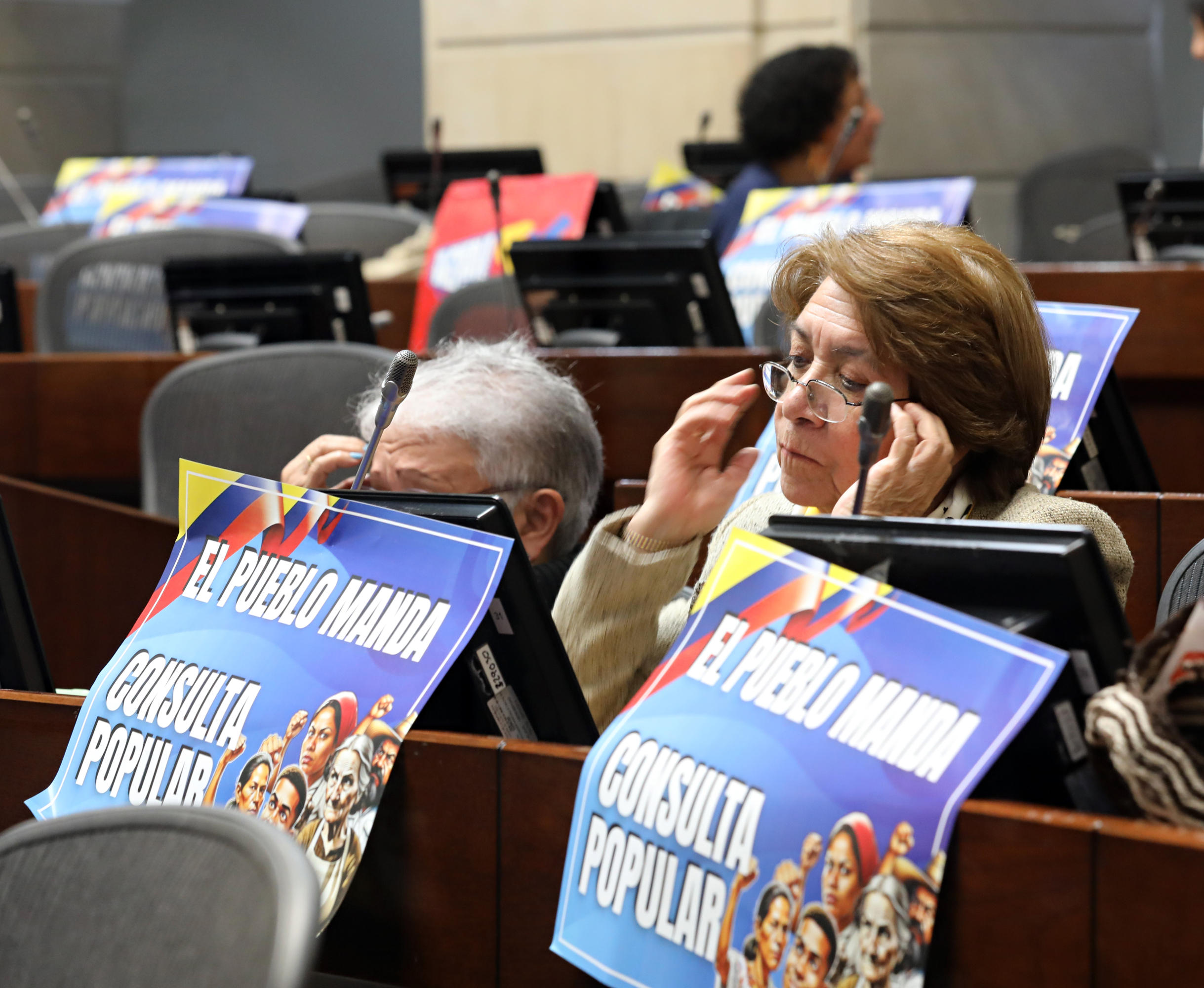By a majority, the Senate revived the labor reform; the referendum failed by two votes: What comes next?

The resurrection of the labor reform shelved almost two months ago by Senate Commission VII —through an appeal that was ultimately supported even by the Executive Branch, which had rejected it outright on Tuesday—preceded yesterday, in one of the most heated sessions of Congress in recent years, the collapse of the referendum, President Gustavo Petro's major political gamble for the end of his term.
The two decisions by the Senate plenary session constitute the strongest political blow yet inflicted by the government in Congress, surpassing other defeats such as the collapse of the 2025 budget, which included a new tax reform, and the shelving of the first health care reform, in 2024. From China, President Gustavo Petro spoke of alleged "fraud" in the Senate, which he asked to reopen the vote. He also called for "a meeting of the labor unions , the peasant coordination, the communal action boards, and the indigenous movement for the next step," which he did not specify, although last night he spoke of an open town hall meeting and ordered the Public Forces not to use their weapons "against the people."

Atmosphere in the Senate after the referendum vote. Photo: Néstor Gómez - El Tiempo
The harsh reaction of the head of state and his political pawns comes despite the fact that the session was conducted in accordance with the regulations of Congress and, above all, a fundamental situation: the approval of the appeal revives the entire labor reform project that the same Executive had managed to impose in the plenary session of the Chamber , which means that all the points proposed in the consultation and several additional ones enter the immediate agenda of that corporation, which yesterday also committed to process it before the end of the current legislature.
This means that potential changes to overtime or Sunday pay could be implemented as early as this year, and in that regard, the consensus that allowed the appeal to be approved advanced yesterday. With the referendum, if it reaches the participation and approval thresholds, these changes could be processed in up to two legislative terms.
The bidding for the agenda On the key day for the referendum, when the Senate plenary session was to decide whether or not to approve the call for a referendum, Senate President Efraín Cepeda put the vote on the report of the committee that studied the appeal against the dismissal of the labor reform and proposed reopening the process as the first item on the agenda. This appeal was filed almost two months ago by Green Alliance Senator Fabián Díaz, of the ruling coalition. Despite putting the key points included in the referendum back on the legislative agenda, both the government and its parliamentarians entered the debate opposing the appeal process, leading senators like Angélica Lozano to assert that, rather than seeking better conditions for workers, President Petro and his forces intended to use the referendum as an electoral platform for 2026.

Fabián Díaz, the Green Alliance senator, filed an appeal against the labor reform. Photo: Milton Diaz / El Tiempo
Although the appeal didn't appear to have enough votes at yesterday's session, the forces gradually shifted. Neither Minister Antonio Sanguino nor his Interior Minister, Armando Benedetti, managed to secure the votes to modify the agenda. Cepeda authorized three votes aimed at putting the referendum to the floor first, but the senators did not support this intention. Around three in the afternoon, after six hours, the government finally got on the appeal bus, and in the plenary session, the two ministers, Sanguino and Benedetti, were heard supporting an appeal that just 24 hours earlier they had denounced as a "mockery." By 68 votes to three, the Senate thus revived discussion of the bill, which will now be debated in a separate committee from the Seventh.
The Senate president immediately opened the vote on the referendum, which, according to Benedetti's estimates as of Tuesday, was "heavily" in favor of the government. And after a head-to-head vote, as expected, the "No" vote ultimately won by 49 votes to the 47 supporting the government . The vote was open for about five minutes, despite which the Executive Branch believes Cepeda shut down the process and supposedly prevented new support for the "Yes" vote from emerging. Senator Martha Peralta, who had left the chamber, asserted that she didn't have time to return for the second vote. But even if she had made it, the referendum would have been defeated by one vote.

The plenary session was tense from the start. Photo: Milton Diaz / El Tiempo
The Government also questioned the Senate secretary's recording of a manual vote in the opposite direction, which was later corrected. The vote Minister Benedetti challenged, paradoxically, was a "No" vote: that of Senator Édgar Díaz of Cambio Radical, who always opposed the referendum and who appeared in support of it in the initial recording (see attached note). The screen showed that the "No" vote had won, but the manual votes—that is, those cast rather than issued by the system—remained unclear: this is where the confusion regarding Díaz's vote arose. However, when the situation was clarified, it was confirmed that there were two manual votes for "Yes" and two for "No." The paper confirming this was published by the Senate. It was the Government's fourth and definitive defeat in the heated session. The votes from Mira—Ana Paola Agudelo, Manuel Virgüeñez, and Carlos Guevara—which until yesterday were in doubt, ultimately decided the opposition's victory.
Those absent at the crucial moment were conservatives Carlos Andrés Trujillo (Olmedo López's political boss), Miguel Ángel Barreto, and Diela Liliana Benavides , who are close to the government and could not openly support it because the caucus' decision was "No." In Cambio Radical, which also established a caucus position, Temístocles Ortega, a well-known Petrista supporter, did not vote. Two other senators from that party also did not appear: Ana María Castañeda and Didier Lobo.
What does the political landscape look like after the government's, for many, unexpected defeat? Pedro Medellín believes the executive branch "grew complacent. " Furthermore, he says, "former President César Gaviria's letter to his senators, in which he warned them that, according to the convention , those who voted in favor of the referendum would not receive support in the upcoming elections, had an influence." For analyst Fernando Posada, the "No" vote from Congress can be read as "a bill they slapped on the President for the threats and hostile tone."

President Gustavo Petro invited Colombians to march. Photo: Milton Diaz / El Tiempo
The fact is that the referendum, which represented a gateway for the Executive Branch to mobilize political bases in the midst of a pre-election year, will not happen. Calls for popular mobilization and even a general strike are resurfacing in the government's narrative. Efraín Cepeda, Speaker of Congress, is consolidating his position as the leading figure of the opposition and also the main target of the government's attacks. Congress remains responsible for thoroughly debating the labor reform proposals and processing the initiatives before June 20, a commitment the parliamentary groups made when they accepted the appeal.
eltiempo





